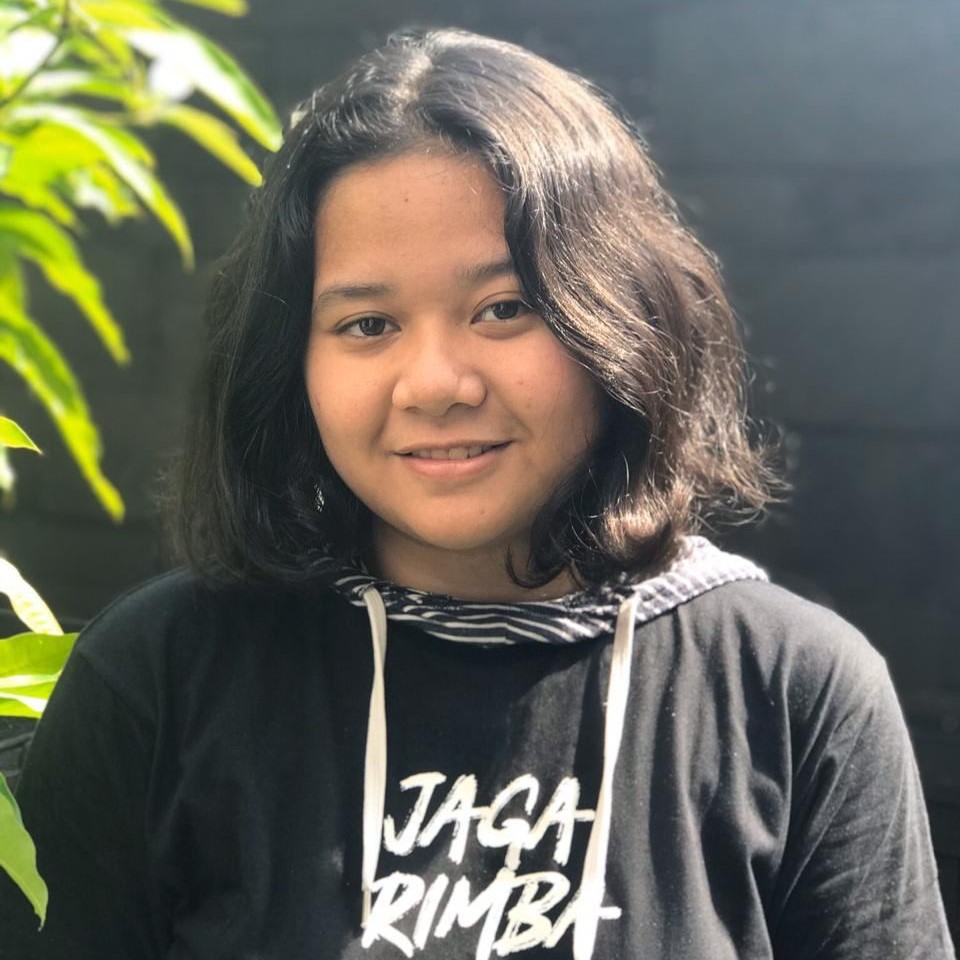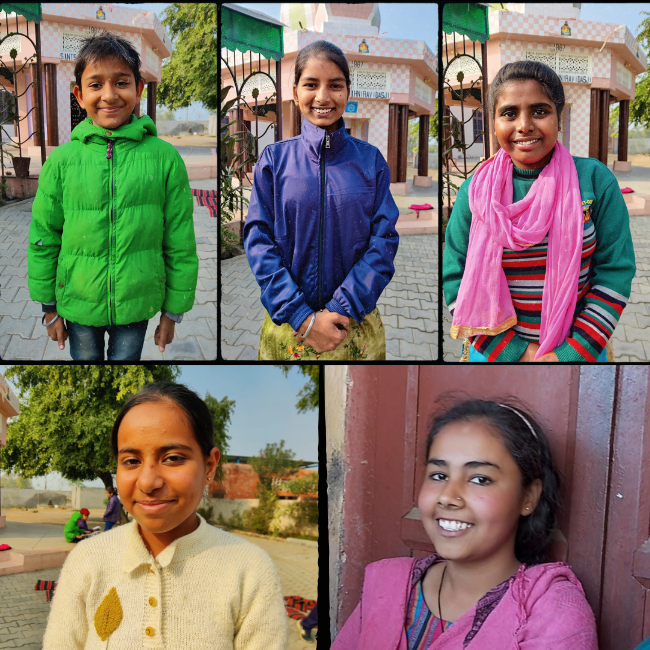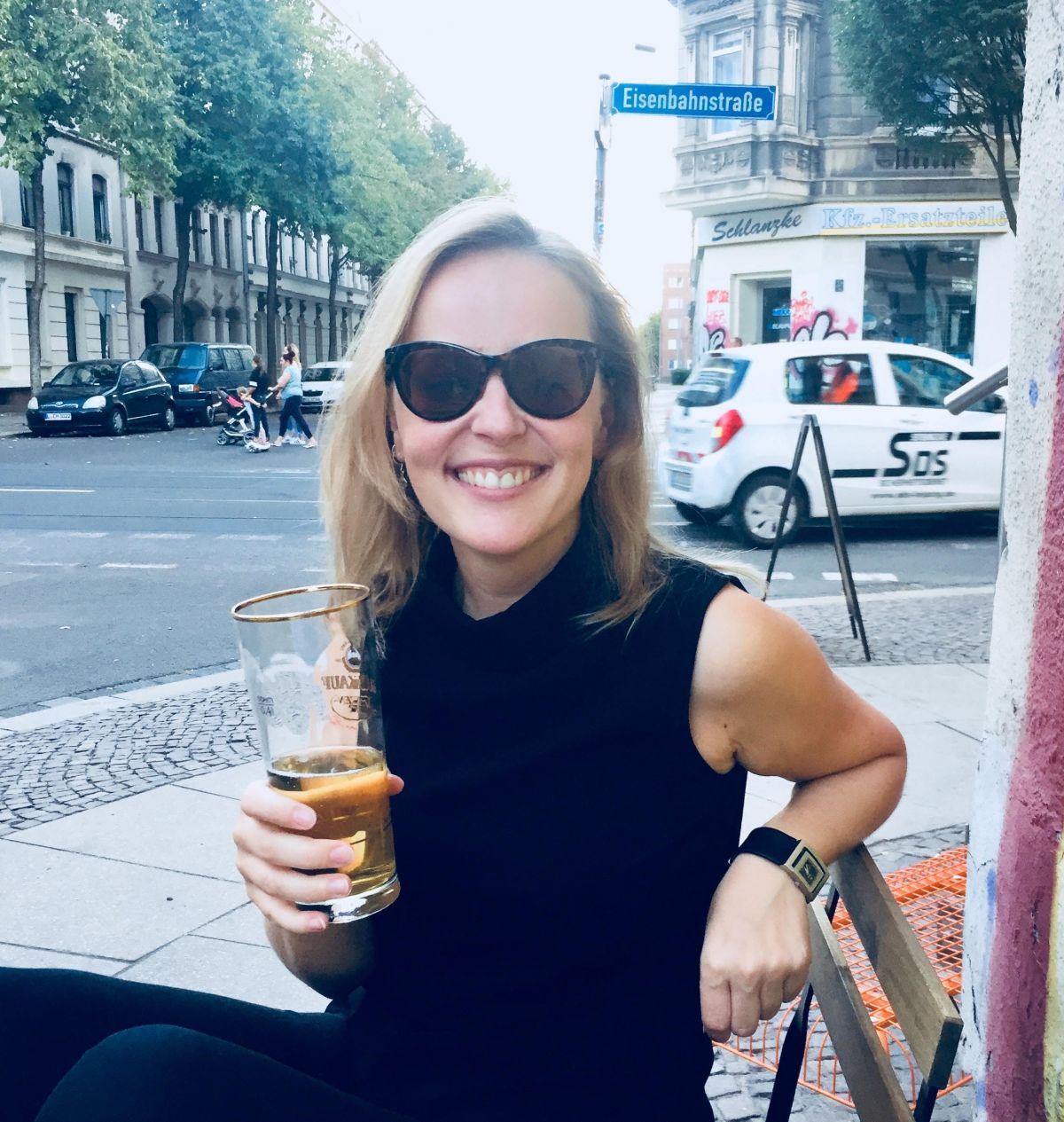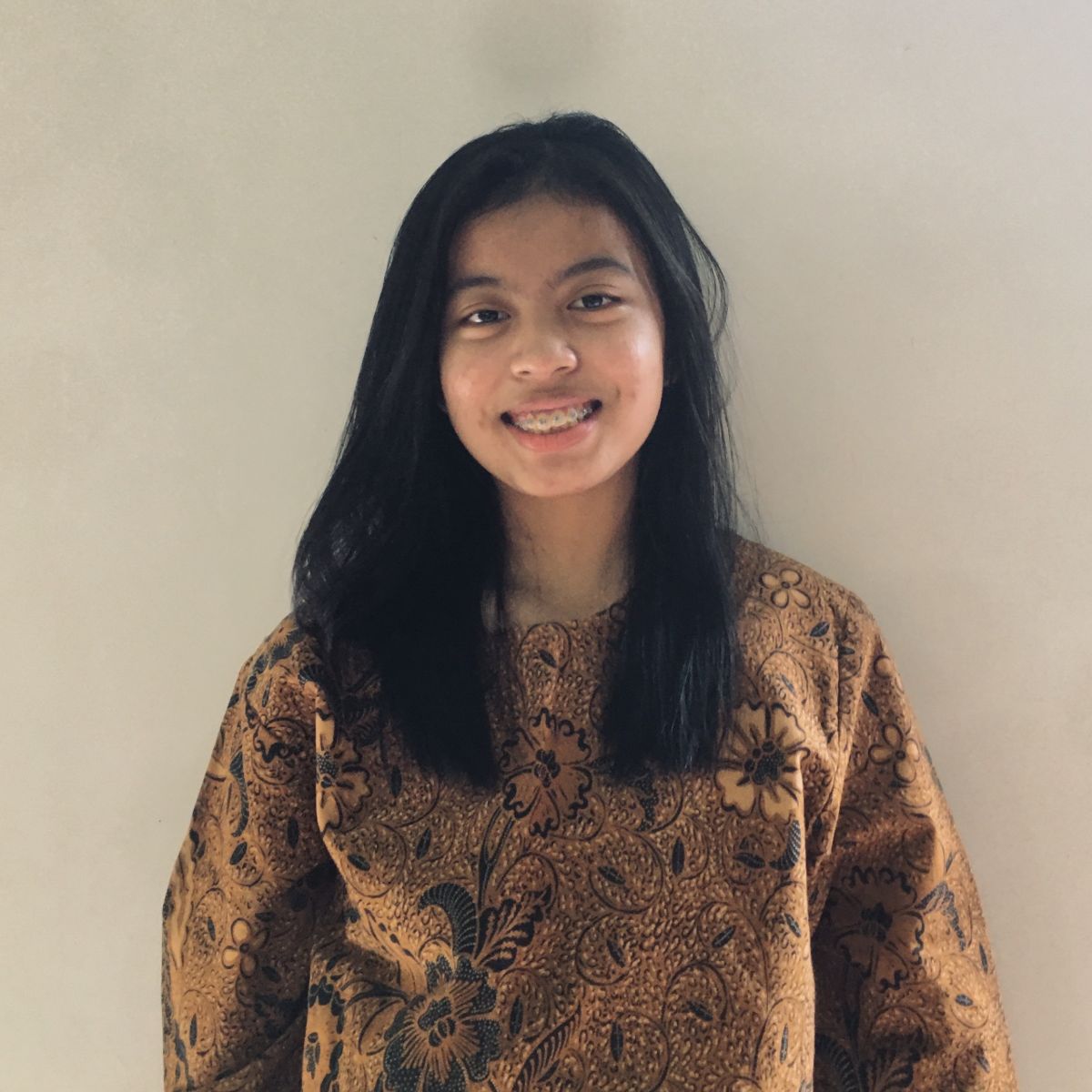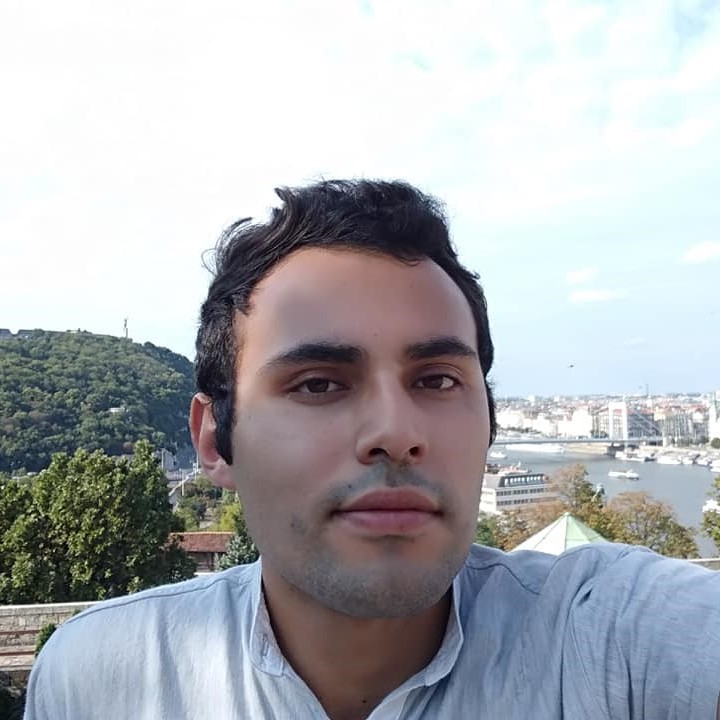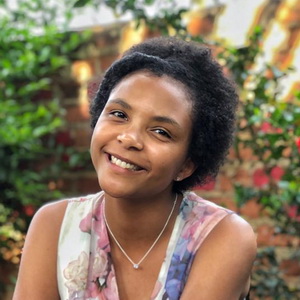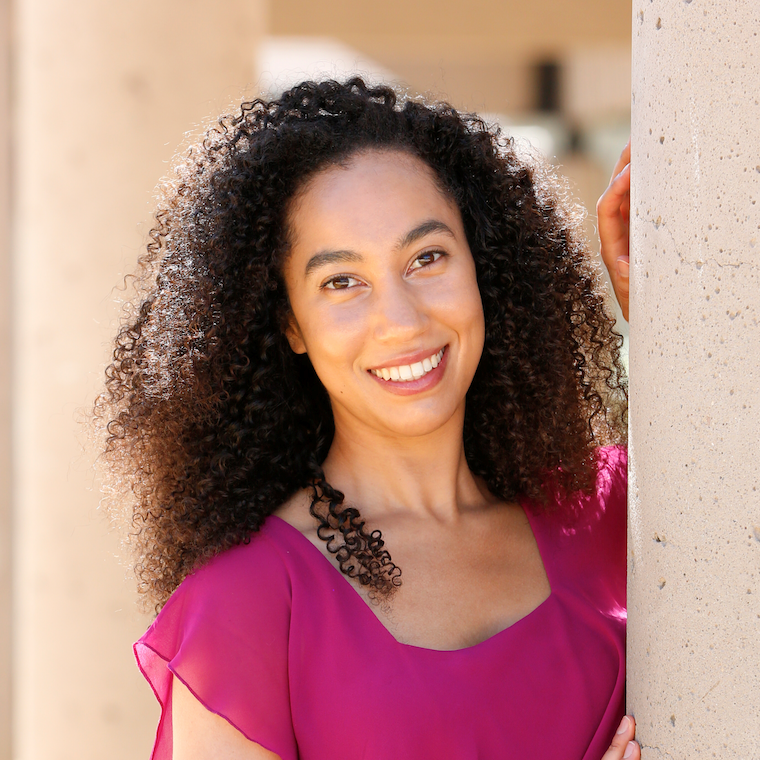Non sono la Greta Thunberg indonesiana
L’anno scorso ho deciso di saltare la scuola ogni venerdì per protestare davanti alla sede del Ministero dell’Ambiente e delle politiche forestali. Definirmi la “Greta indonesiana” cancella la mia narrazione e quella di altri giovani attivisti provenienti dal Sud del mondo.
Indonesia, Southeastern Asia
Story by Salsabila (Abil) Kairunissa. Translated by Maria Grazia Calarco
Published on May 24, 2022.
This story is also available in 



Da quando i miei scioperi scolastici a Giacarta hanno cominciato ad attirare l’attenzione dei media, continuo a pensare di “mollare” il mio attivismo. Ne ho abbastanza delle persone che mi dipingono come “catalizzatrice del cambiamento” o “gioventù di belle speranze”. Altri giovani membri di Jaga Rimba[1] (in italiano, Proteggi la Giungla), la piattaforma per la giustizia ambientale che ho fondato, condividono il mio senso di disagio.
Voglio specificare: non sto cercando di screditare la stampa per aver amplificato le nostre voci né voglio generalizzare dicendo che tutti i mezzi di comunicazione sono “cattivi”. Al contrario, sono grata per il fatto che il giornalismo ha contribuito a convertire l’attivismo in azioni concrete. Inoltre, voglio sottolineare che non sto parlando a nome di tutti i giovani. Sto riflettendo sulla mia esperienza personale.
Quando le persone hanno saputo del nostro Sciopero scolastico per la Foresta a gennaio 2020, molti hanno risposto: “Oh, quella cosa che fa Greta Thunberg!”. All’inizio, questo non mi infastidiva perché pensavo che fosse un bene educare il pubblico. Poi, quando i principali mezzi di comunicazione mi hanno descritta come la “Greta indonesiana”, mi sono resa conto che era sbagliato. Mi rifiuto di essere etichettata come la sua “versione locale”. Eppure, molti continuano comunque a farlo.
Mi rifiuto di essere etichettata come la sua “versione locale”.
Per prima cosa, comparare la mia battaglia a quella di Greta è come mettere a confronto le mele con le arance. Abbiamo ricevuto due educazioni molto diverse. La gran parte dei giovani indonesiani non cresce con il lusso di sapere che la libertà di parola non è un problema. Essere equiparata a Greta porta via le mie narrazioni e la mia identità. Secondo, non ho mai voluto essere etichettata come “un modello ispiratore”. I media mi dipingono come una “giovane ispiratrice” che sta portando “speranza” al movimento climatico indonesiano. Ma diffondere speranza non è mai stata la mia intenzione. Al contrario, sto amplificando la triste realtà della giustizia climatica in Indonesia, una realtà che la maggior parte delle persone si rifiuta di vedere. Definirmi una “giovane ispiratrice” ignora il mio privilegio di essere nata in città, crea una gigantesca zona d’ombra nei riguardi del vero attivismo giovanile e delle lotte ambientali nell’Indonesia rurale, e oscura le complesse sfide che i paesi del Sud del mondo - o quelli che io preferisco chiamare MAPA (Most Affected People and Areas, Persone e Aree Più Colpite) - devono affrontare rispetto ai paesi del Nord.
Nei paesi del Nord gli studenti possono scioperare ogni venerdì senza dover affrontare conseguenze serie che potrebbero mettere a repentaglio il loro futuro. Compiere azioni simili qui potrebbe portare a una repressione senza fine. Potremmo venire ostracizzati dalla società, perché per le classi dirigenti di Giacarta le battaglie dei giovani sono solo delle “seccature” che disturbano gli interessi dei colossi aziendali. Detto questo, avere una piattaforma come Jaga Rimba è davvero un privilegio. Noi membri siamo circondati da studi di assistenza legale che offrirebbero la loro consulenza pro bono se venissimo mai perseguitati ingiustamente. Abbiamo il lusso di poter scioperare senza preoccuparci di essere cacciati di casa o di avere delle pistole puntate alle tempie.
Dobbiamo decolonizzare il movimento climatico.
Per la maggior parte delle persone nel gruppo MAPA non c’è altra scelta che combattere. Dalle zone rurali a quelle urbane, dalla foresta di Kinipan, nella provincia del Kalimantan, fino al villaggio di Pancoran a Giacarta, per generazioni i giovani si sono organizzati per combattere contro l’accaparramento delle terre e lo sfratto forzato, a rischio della loro stessa vita. Ma i media li definirebbero “ispiratori”? La gente li definirebbe “catalizzatori del cambiamento”? Ne dubito, perché le loro storie non vendono. Resistere, combattere l’oppressione: queste non sono considerate azioni “rivoluzionarie” né “ispiratrici”.
Invece di stabilire un “modello” su come i giovani dovrebbero comportarsi, credo che dobbiamo decolonizzare il movimento climatico, riconoscendone la diversità e amplificando le voci di coloro che sono più colpiti dall’emergenza climatica. Quest’ultima, infatti, è strettamente legata al colonialismo e dominata da punti di vista eurocentrici. Finché questo non succede, la conversazione sul cambiamento climatico escluderà sempre i giovani MAPA, avvantaggerà solo i paesi ricchi del Nord del mondo e continuerà a perpetuare l’oppressione.
[1] Jaga Rimba è un movimento giovanile indonesiano che mira a contrastare la deforestazione e ad agire in difesa dell’ambiente. É strettamente connesso alla comunità che viveva nella foresta di Kinipan e che nel 2018 è stata sfrattata dal proprio villaggio da una multinazionale che produce olio di palma.
How does this story make you feel?
Follow-up
Do you have any questions after reading this story? Do you want to follow-up on what you've just read? Get in touch with our team to learn more! Send an email to [email protected].
Talk about this Story
Please enable cookies to view the comments powered by Disqus.
Subscribe to our Monthly Newsletter
Stay up to date with new stories on Correspondents of the World by subscribing to our monthly newsletter:
Other Stories in Italiano
Explore other Topics
Get involved
At Correspondents of the World, we want to contribute to a better understanding of one another in a world that seems to get smaller by the day - but somehow neglects to bring people closer together as well. We think that one of the most frequent reasons for misunderstanding and unnecessarily heated debates is that we don't really understand how each of us is affected differently by global issues.
Our aim is to change that with every personal story we share.
Community Worldwide
Correspondents of the World is not just this website, but also a great community of people from all over the world. While face-to-face meetings are difficult at the moment, our Facebook Community Group is THE place to be to meet other people invested in Correspondents of the World. We are currently running a series of online-tea talks to get to know each other better.











